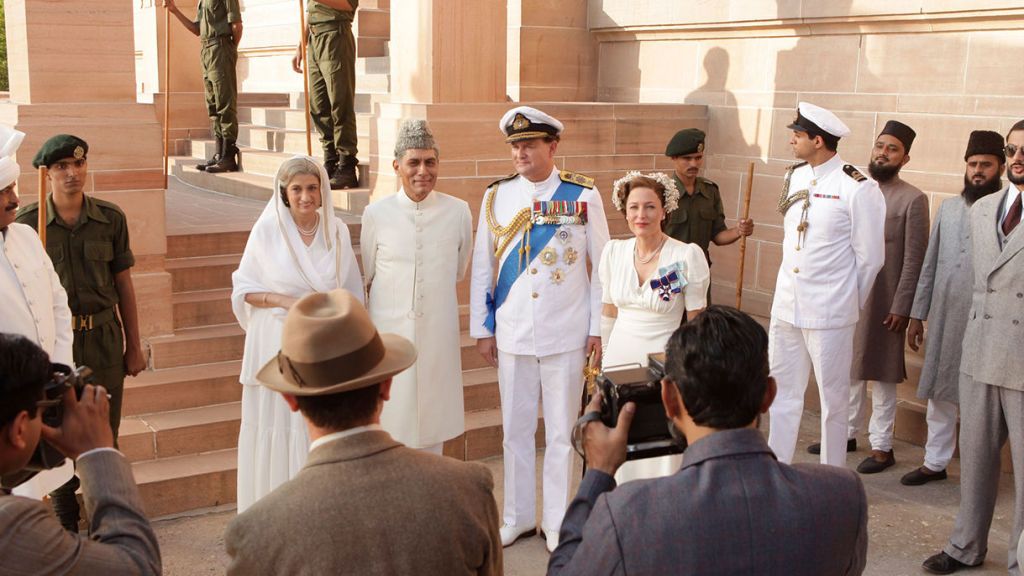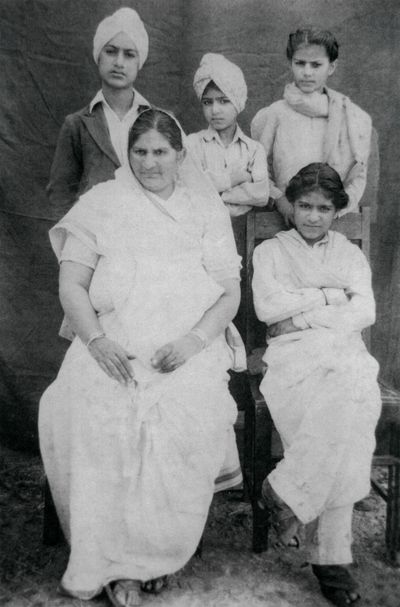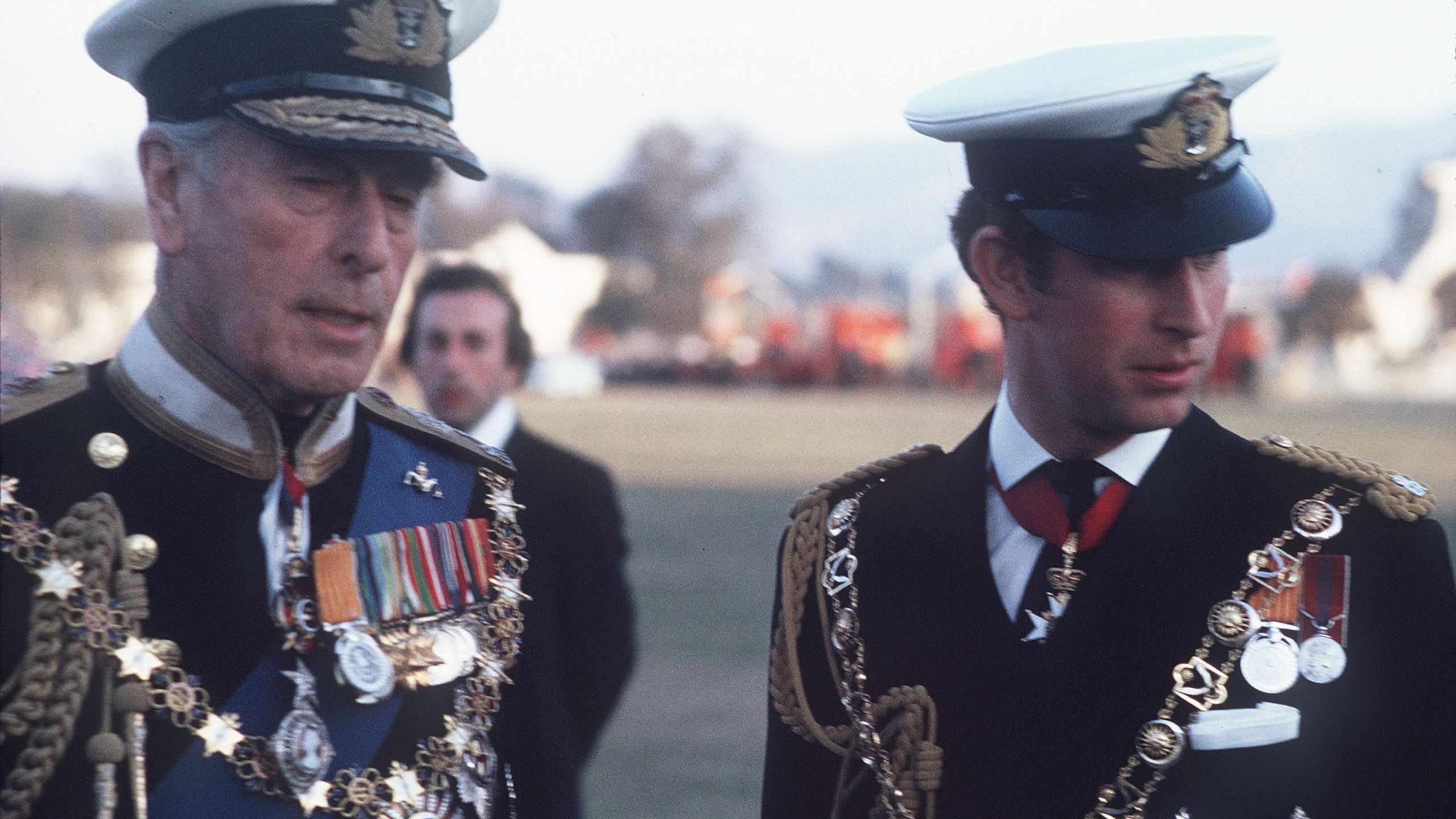My Family Lived Through the Biggest Refugee Crisis in History, and It Couldn't Be More Relevant Today
In an exclusive essay, director Gurinder Chadha talks about how her family's devastating history influenced her decision to make a film about the British Partition of India. It's since been banned in Pakistan.

Gurinder Chadha is the acclaimed director of 'Bend It Like Beckham.' Her new film 'Viceroy's House' is about Britain's Partition of India, as well as the life of Lord Mountbatten—who oversaw the country's divide.
When I was a young girl in West London, I would watch my favorite soap Crossroads Motel. My grandmother would sit on the sofa peeling garlic, her limited English meant she had little interest in what was transpiring on screen. Until the villain would appear—then she would recoil and gasp, "Mussallman!" I would say, "No Beji, he's an Englishman, they're in Birmingham!" What I failed to comprehend was that my grandmother was traumatized by her experiences during the Partition of India—the British Empire's 1947 decision to divide the country into India and Pakistan, which made her (as well as 14 million others) a refugee overnight. It was the largest mass migration in history, and over one million people from both sides died. But our family, and countless others, never spoke about this tragedy.
The little I learned in school about India's Partition taught me that when the British were finally ready to leave, they had no choice but to divide the country because communal violence between Hindus, Muslims, and Sikhs was out of control. It was somehow our fault that neighborhoods suddenly started attacking each other after living together in relative peace for centuries. The Indian leaders—Gandhi, Nehru, Jinnah—couldn't stop the violence, nor agree on what an independent India would look like, so the last British Viceroy Lord Mountbatten had no choice but to split the country in half.

At university, I asked my mum about what happened and she told a different story. She had been living happily in Rawalpindi (now Pakistan) and had many Catholic and Muslim friends. As a Sikh family, she and her mates celebrated each other's holidays and shared traditions. Then madness set in. My mum said everyone knew the British did something, as if something had suddenly been put in the water, but no one knew what, exactly.
In 2005, I was the subject of a BBC documentary for the show Who Do You Think You Are?. It meant I was able to travel to Pakistan for the first time and visit my ancestral village. When I arrived at what used to be my family's house, I was warmly greeted by a woman who placed a shawl on my shoulders and said, "Welcome home sister, we have been waiting for you." I was deeply moved, and at that moment I knew I needed to make a human, healing film about why my family was forced to leave their home as refugees.
Years later, whilst writing the script, I happened to meet Prince Charles at a charity event in St. James' Palace. I told him I was preparing a film about his favorite uncle Lord Mountbatten, and he was interested in my sources. He told me I needed to read Narindra Singh Sarila's The Shadow of the Great Game, as it showed how Mountbatten was used by the British Establishment. I was surprised to hear this from Prince Charles, and managed to find the book the next day. It exposed top secret government files that had been sealed for fifty years—including war cabinet reports that proved dividing India was directly related to Britain's desire to retain its status as a post-colonial world influence. These reports revealed that the conventional narrative about India's Partition was a lie—it wasn't about communal violence, but a political decision based on Britain's strategic interest in the region, their fear of Soviet expansion, and India's proximity to the Persian Gulf.

Years later during the filming of Viceroy's House, I was standing with Gillian Anderson, Hugh Bonneville, and Om Puri overlooking a refugee camp with 1,000 extras, which we had recreated outside an Indian fort. It looked like the kind of refugee camp I imagine my family living in—where my Grandmother lost her baby daughter because there was no food to feed her.
Get exclusive access to fashion and beauty trends, hot-off-the-press celebrity news, and more.
I felt the weight of telling a story about how all sides suffered thanks to politicians putting policy above their citizens. I knew if I got the balance wrong, it could ignite further tensions between India and Pakistan—the unresolved feelings that have already led to three wars between neighbors. I also knew that history is written by the victors, and this was my chance to tell my story from my point of view. I was filming on a roller coaster of joy and tears—at a time before there was a Syrian refugee crisis, before Brexit, before Trump, before travel bans, and before bombastic talk of building walls and creating borders.
"The film—and the decision to ban it—is a reminder of just how important it is to speak out when politicians follow an agenda which divides rather than unites."
Months later, as the film is being released around the world, it feels more relevant than ever. The ugly politics of hate grow in volume. And despite having the privilege of watching Viceroy's House with people who share how much it moved them, and despite sitting with Indian audiences who have wept in appreciation over being able to discuss such a raw, painful subject—today I have been told my film has been banned in Pakistan. It deeply saddens me that Pakistanis will be unable to watch a story which is as much theirs as mine. It will always be the land of my ancestors, my sisters, and my brothers—and they will not be able to view a story I made about our shared history and pain.
The film—and the decision to ban it—is a reminder of just how important it is to stand up and speak out when politicians follow an agenda which divides rather than unites. When we separate people based on religion, race, gender, or sexuality, there are dangerous consequences. Wounds that fester unless healed. We must pass this message on to future generations so tragedies like Partition can never happen again.
Follow Marie Claire on Facebook for the latest celeb news, beauty tips, fascinating reads, livestream video, and more.